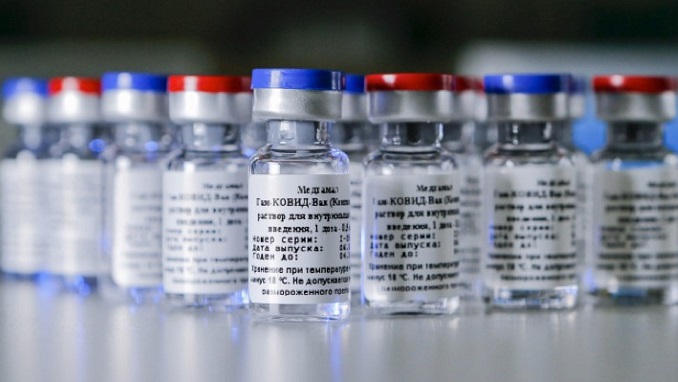The report in the medical journal The Lancet on the safety and efficacy of the Russian vaccine against the novel coronavirus has put Sputnik V among the world’s top vaccines, David Livermore, a member of the scientific advisory board on Sputnik V, said in an interview with Sputnik.
On Tuesday, peer-reviewed medical journal The Lancet published an interim analysis from the phase 3 trial of the Russian vaccine, showing its 91.6 percent efficacy against symptomatic COVID-19. The vaccine is also 91.8 percent effective for people aged over 60, and none of the rare serious adverse effects had been deemed to be associated with the vaccine, with most of the side effects being mild flu-like symptoms.
“I think it is a good, well-conducted trial. The data are sound. You cannot see any obvious problem with it, 91.6 percent efficacy puts Sputnik V up in the top-flight vaccines that have [been] reported so far,” Livermore, who is a professor of medical microbiology at the UK University of East Anglia, said.
Commenting on the probable approval of the vaccine’s use in the European Union in early March, the professor said that the entire world, including Europe, which is experiencing disruptions in the imports of COVID-19 vaccines, needs every available vaccine.
“The world needs all the good vaccines that it can get. That includes continental Europe, the European Union, which has not made a good job of its vaccine procurement,” Livermore said.
The medical scientist went on to explain that all the existing vaccines against COVID-19 could be divided into four types: those that use classic technology of inactivated virus, such as China’s Sinopharm and Sinovac; those that take the spike protein from the virus, reform it into nanoparticles and inject it as a vaccine, such as the vaccine by the US’ Novavax; messenger-RNA vaccines, such as those developed by Moderna and Pfizer, and adenovirus vector vaccines, such as Sputnik V, the vaccine by AstraZeneca-Oxford, and Johnson&Johnson’s upcoming vaccine.
“Interestingly, out of these [adenovirus vector vaccines], Sputnik V has come up with 91.6 percent efficacy, whereas AstraZeneca and Johnson&Johnson are having 60 percent efficacy. So, Sputnik V has come up significantly the best of these three adenovirus vector vaccines,” Livermore said.
However, the scientist could not single out one type of vaccine that provides the best protection.
“One could argue that, perhaps, the ones that use the old technology, inactivated virus, might, in theory, have an advantage over spike-protein vaccines if we get different variants because they will also give some immunity to other components of the virus. But that is purely theoretical. The messenger-RNA, the adenovirus, and nanoparticle, Novavax, could all be adjusted to cover virus variants in the future,” Livermore added.
Sputnik V, developed by the Gamaleya Epidemiology and Microbiology Center and registered by the Russian Ministry of Health on August 11, was the world’s first vaccine against the novel coronavirus. The vaccine consists of two components that are applied to a person within an interval of 21 days. The phase 3 trial included over 20,000 adult volunteers, and is still ongoing, as it aims at including 40,000 participants.












